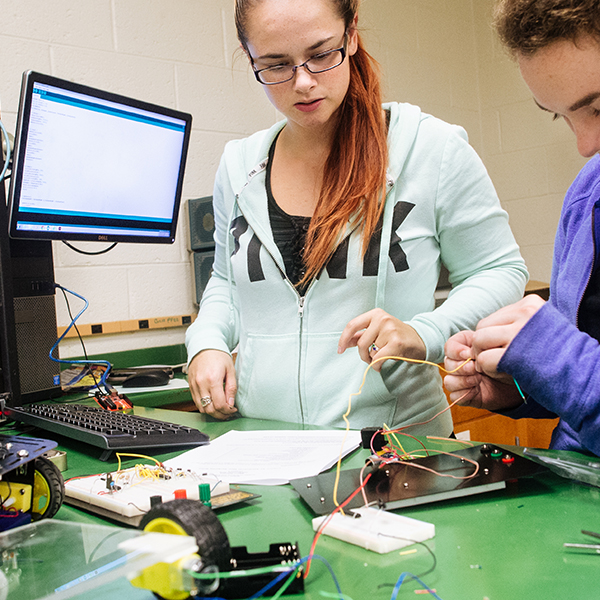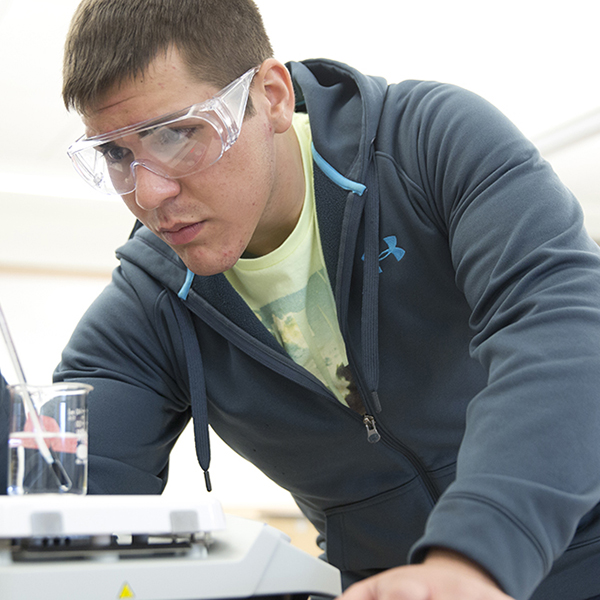Interested in gaining a wide range of general and specialized knowledge in everything from understanding the universe, planets and black holes, to molecules and microchips? Then Wilkes University’s Physics Major is for you.
Program Snapshot
| Program Type | Format | Credit Hours |
|---|---|---|
| Major, Minor | On Campus | 123 (20 for minor) |
Why Study Physics at Wilkes?
Working side by side with our distinguished professors in small classes, you’re guaranteed a rich mentoring experience. Professors in the physics program possess unique cross-disciplinary expertise including solid-state and computational physics, and deliver the knowledge and skills necessary for you to succeed in many different fields.
The physics major at Wilkes has a flexible two-track curriculum that allows you to steer your degree toward specific areas of interest. The education track is designed for a career as a secondary education physics instructor, while the applied science track provides you with the quantitative tools and mathematical skills necessary for engineering, legal, medical, dentistry, optometry and other professional programs.
What Will You Learn as a Physics Student?
- The physics curriculum includes the teaching of critical thinking skills and the ability to formulate hypotheses necessary to conduct research.
- You will learn the fundamentals of physics; how the world works and the basic principles that govern the physical world.
- You’ll learn quantum and statistical mechanics, electromagnetism, thermodynamics, advanced electrodynamics, relativity and solid-state physics.
- Because our dynamic curriculum connects theory to other science disciplines, our program allows you to focus on a variety of specialized areas in computational physics, biophysics, microscopy, spectroscopy and nanotechnology, just to name a few.


